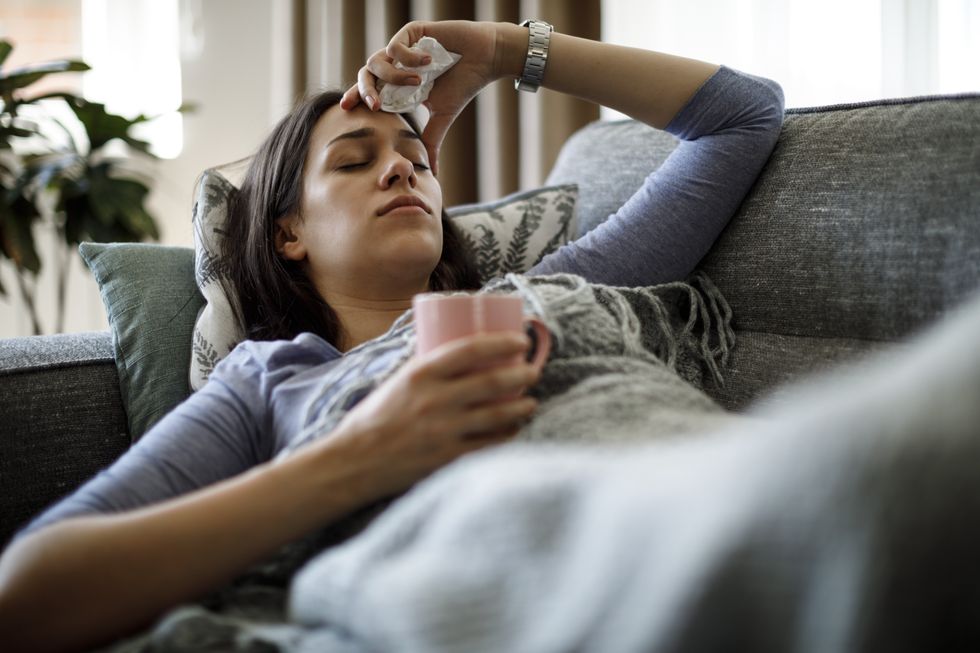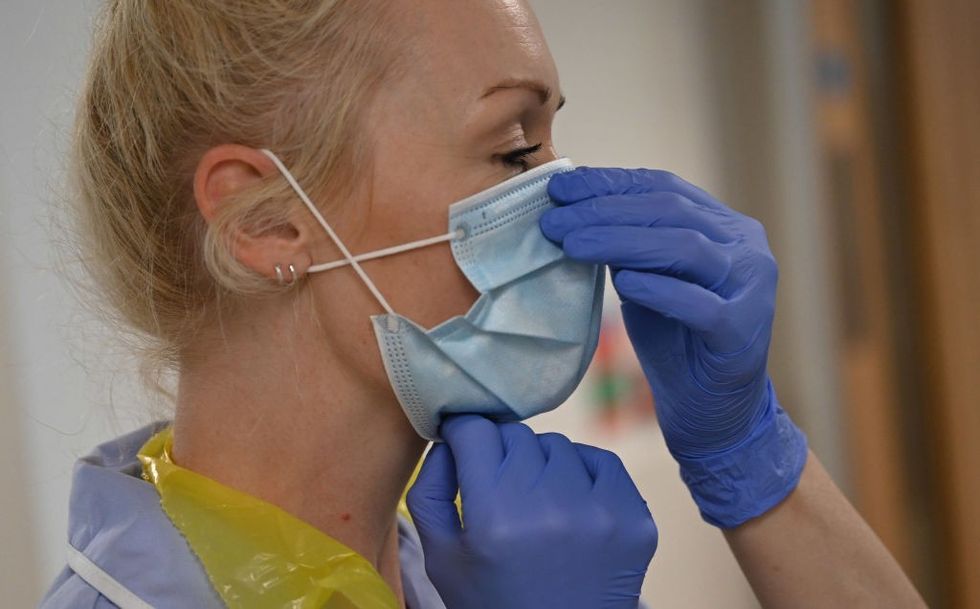
Several major British hospitals have reintroduced Covid-style restrictions, including mandatory masks, as they grapple with a wave of winter illnesses dubbed a “quad-demic”.
The measures come as healthcare facilities face “exceptionally high demand” from patients suffering from a combination of influenza, Covid-19, respiratory syncytial virus (RSV) and norovirus.
Several hospitals were forced to declare critical incidents, with emergency departments facing severe overcrowding.
The Cardiff and Vale Health Board has warned the flu wave is expected to peak within the next 10 days.

The Cardiff and Vale Health Board has warned the flu wave is expected to peak within the next 10 days.
Getty Images
The risk of contracting these four diseases increases significantly during the winter months as people spend more time indoors with friends and family.
Masks play a crucial role in controlling these infections by trapping droplets from coughs, sneezes and speaking, while protecting wearers from inhaling virus-containing particles.
The latest report from the UK Health Security Agency says that although Covid and RSV cases have stabilised, flu infections and vomiting increased in the weeks leading up to Christmas.
Richard Hughes, deputy director of the Cwm Taf Morgannwg health board, explained the urgency of mask mandates: “When influenza enters and circulates in a hospital, it can cause significant problems, posing a real risk to the health of patients and causing absences among our staff. »
MORE LIKE THIS:
The combination of these winter illnesses has placed unprecedented pressure on hospital resources, with staff absences compounding the challenge of managing the growing number of patients.
Chesterfield Royal Hospital and University Hospitals Leicester Trust have implemented immediate mask requirements in their facilities.
A Chesterfield Royal spokesperson told the BBC: “This is in line with the increase in flu cases in our hospital and our agreed thresholds, which will be regularly reviewed. »
University Hospitals Leicester NHS Trust has cited increased staff absences and increased patient numbers as having a significant impact on their ability to provide timely care.
Hospitals across Lincolnshire have joined the measure, with the United Lincolnshire Teaching Hospitals NHS Trust introducing masks in high-risk areas.
The trust explained: “This infection prevention measure is being reintroduced in high risk areas due to the increase in cases of Covid-19, Influenza A and RSV in hospitals and community settings. »
The Leicester facilities affected include Leicester General, Leicester Royal Infirmary and Glenfield hospitals.
Royal Stoke University Hospital has declared its eighth critical incident of the year due to growing pressure in A&E departments.
The statement extends to Stafford County Hospital, with both facilities run by University Hospitals of the North Midlands.
In Royal Stoke, patients had to wait more than four hours to be seen at A&E on Thursday.
Hampshire Hospitals NHS Trust has also declared critical incidents at the Royal Hampshire County Hospital and Basingstoke and North Hampshire Hospital.
The trust said on Monday: “Beds at both hospitals are full and attendance at our emergency departments is extremely high. »

Masks play a crucial role in infection control by trapping droplets from coughs, sneezes and speaking. (Stock image)
Getty
Hampshire’s hospital crisis stems from high admission rates, many infectious patients requiring isolation and low discharge rates.
The Cwm Taf Morgannwg University Health Board also reported exceptional pressure at the Royal Glamorgan, Prince Charles and Princess of Wales hospitals.
Hospitals across the UK are urging patients with non-urgent problems to avoid emergency departments due to the current crisis.
Patients attending emergency departments have been warned they could face “extremely long waits” for treatment.
Health officials are advising the public to seek alternative care options for non-urgent problems, including contacting 111, going to a GP, pharmacy or urgent treatment centre.
Hampshire Hospitals NHS Trust stressed that there is “currently no capacity to admit further patients who need our care”.
The situation has prompted health boards to appeal for public support, with Cwm Taf Morgannwg noting that hospital beds are already occupied and emergency departments are experiencing higher than normal footfall.
Some relief has emerged on the Isle of Man, where visiting restrictions at Noble Hospital, initially imposed due to a “significant increase” in norovirus cases, have now been lifted.






